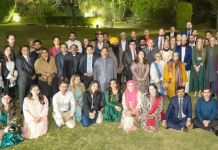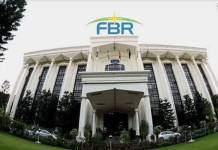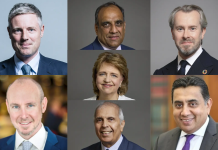UNITED NATIONS, Jul 19 (DNA): Pakistan has made “considerable progress” in integrating sustainable development into the country’s national policies and aligning its legislative agenda with the anti-poverty Sustainable Development Goals (SDGs), the National Assembly’s Deputy Speaker, Zahid Durrani has told a key UN forum.
Speaking in a segment of the High-Level Political Forum (HLPF) — held under the auspices of the UN Economic and Social Council (ECOSOC) — he said Pakistan had assumed complete ownership of Agenda 2030 for SDGs, and was working “relentlessly” to strengthen its parliamentary institutions.
Durrani said that parliaments not only reflect the aspirations of their peoples; they also undertake vital legislative, oversight, and policy review functions for the state.
The deputy speaker was addressing the HLPF’s Parliamentary Forum which is taking stock of the role of parliaments in the implementation of the SDGs over the past few years and in accelerating action in the years ahead.
“We were the first country to adopt the SDGs as its own national development agenda through a resolution adopted by our National Assembly in 2016”, Durrani told the forum.
He also said that a Parliamentary Task Force had been established to stratagize, legislate, and oversee the effort to implement the SDGs.
The national and provincial as well as special area task forces are closely monitoring progress towards the SDGs, with 20 sub-groups formed at the National parliament, the deputy speaker added.
Later, Shazia Marri, a member of the National Assembly, spoke during the session on SDG 6, which calls for ensuring access to water and sanitation for all.
“Today, 2 billion people around the world still lack safely managed drinking water. Almost half of the global population – 3.6 billion people – lack safely managed sanitation. Intense water scarcity may displace 700 million people by 2030,” she said, pointing out that Pakistan was one of the most water-stressed countries.
“Our climate is semi-arid, our food and agriculture production relies heavily on the Indus River and its tributaries for water. Pakistan has the largest continuous irrigation system in the world,” Shazia Marri said, while underscoring the need for scrupulous respect for the 1960 Indus Waters Treaty.
“We also aim to rehabilitate the Indus irrigation system and our aquifers through a project called ‘the Living Indus’,” she added.
In this regard, Shazia Marri said Pakistan had established a Standing Committee on Water Resources to oversee this project.
“In order to achieve the SDG 6 targets, it is essential for all states to improve planning, governance capability, and finance at the national, provincial and municipal levels” she stressed.
In another session on ‘Beyond GDP (Gross Domestic Product): Measuring and valuing What Matters to People and the Planet’, Senator Quratulain Marri, offered her comments on the subject.
“The fact that GDP solely gauges the size of a nation’s economy and captures its overall wealth, without considering other relevant factors, has often been overlooked,” Sen. Quratulain Marri said, and called for acknowledging its constraints as a measure of development.

















